Kevin Roberts is old enough to know what Mark Twain said about picking fights with people who buy ink by the barrel (hint: don’t do it). And he’s also young enough to know that the same warning applies to anyone with 45,000 very engaged followers on Twitter and a bio that reads, "I like to blow shit up."
But there he was last week, publically dissing Cindy Gallop, former chairman of BBH and outspoken diversity advocate, as an opportunist who exploits issues of gender and race to raise her own profile.
"I think she's got problems that are of her own making," said the Saatchi & Saatchi chairman in the now-infamous
Business Insider article. "I think she's making up a lot of the stuff to create a profile, and to take applause, and to get on a soap[box]."
It may have been his comments about women in advertising and their lack of "vertical ambition" that got Roberts
placed on leave. In 2016, telling a reporter that, when it comes to gender diversity, "the fucking debate is all over" is a one-way ticket to early retirement.
But it was his comments about Gallop that sealed Roberts’ fate as Public Enemy No. 1 on social media this past weekend. Once Gallop instructed "the women and men of the ad industry, all around the world, to tweet at @krconnect,’" Roberts’ chances of survival went from slim to dismal. By Saturday—barely 24 hours after the article was published—Roberts had been shown the door.
PETA, the ACLU and Cindy Gallop
Though Gallop
said publicly on Monday that she won’t dignify Roberts’ comments by continuing to talk about them (she declined a request to talk for this article, too), female advocates say Roberts’ criticisms are distressingly familiar. Women who make it their business to agitate for social change, particularly if it leads to paid speaking or writing gigs, can expect regular accusations of opportunism.
"A lot of people still consider it unseemly for a woman to be self-promotional," said Rachel Sklar, founder of female networking group The Li.st and the closest thing the tech community has to a Cindy Gallop. "Meanwhile, this guy Kevin Roberts created a hashtag out of his own name."
Indeed, anyone who’s spent enough time eavesdropping on adland’s private conversations about Gallop has surely heard some version of Roberts’ rant: She goes too far, she blows it out of proportion, she’s only in it for herself. Like PETA or the ACLU, her actions can sometimes elicit eye-rolls from more moderate allies.
Sklar, who originated the #Changetheratio hashtag that Gallop has adopted, says men and women in tech have been accusing her of exploitation from her earliest days as a public advocate. Most famous were the barbs aimed at her by former TechCrunch editor Sarah Lacy at the 2010 TechCrunch Disrupt Conference, which Sklar had criticized for a lack of female representation.
"You’ve done great for you,"
Lacy said to Sklar during a panel discussion. "You’re on stage at Disrupt, you drive lots of traffic, you get lots of attention. I think you’ve played it brilliantly."
Such criticism is difficult to refute because it "cuts to the credibility of your motivations," said Sklar. "When it’s first lobbed at you, your first reaction is to get defensive. Maybe they’re right! Maybe its your fault for becoming prominent by raising your voice about something that not that many people are yet raising their voice about."
But over years of establishing herself as a force for change within the industry, Sklar says she no longer bothers to fight charges of opportunism. Instead, she asks why anyone should care. "It’s a ludicrous accusation," she said. "What does it matter? Why is that the focus?"
"For the first time in the ad industry, there have been major consequences for explicit sexism" thanks largely to Gallop's efforts, she continued. "And I find it really amazing that anyone would focus on, ‘Yeah but isn’t Cindy really getting something out of this? She should!"
The price of advocacy
To Gallop’s supporters, the fact that she simultaneously agitates for social change and raises her own profile doesn’t represent a conflict of interest. Jonathan Mildenhall, CMO at Airbnb, notes that Gallop plays an essential role in the industry by speaking unpleasant truths that others may shy away from. "Cindy is a provocateur for sure," he said via email. "Even I wince a little at some of the things she says."
"But I always credit her for having the balls to speak up," he continued. "That said, does the industry need her? For sure. Is she making a difference? You bet. Does she benefit directly? Of course."
Kat Gordon, founder of the 3% Conference, knows a thing or two about Gallop's predicament. "Women who are accused of being self-serving when pointing out gender bias are in a double bind," she said in an email message. "On the one hand, they're missing opportunities or witnessing injustices in their companies. So they're already in a no-win situation. Yet if they speak up about it, they're griping, possibly because they're 'not a team player' or are using their gender as an excuse for other problems in their performance."
Which is one more reason why it's important for everyone to speak up about workplace injustice, she says. "The 'principle of another messenger' phenomenon is quite powerful," she said. "If a man points out something he notices that unfairly impacts women, he must be telling the truth. He has no 'agenda.' And if a white person points out something she notices that unfairly impacts people of color, she is also perceived to be telling the truth."
Also driving the exploitation narrative are a couple of misperceptions about the life of a cultural activist, said Sklar. Most common is that the barrier to entry is low, that it costs someone nothing to make waves over an issue in an industry they’re not a part of. Just as Gallop hasn’t worked in advertising for years, Sklar had never worked for a tech startup before she raised her voice on gender issues, which helped feed resentment to her actions.
But being outside the industry gives Gallop the freedom to say things people in positions of power can’t afford to, said Ian Schafer, CEO of Deep Focus. "She’s been on the inside in an executive chairman position, but now that she’s on the outside, she can reflect on it without recourse," he said.
"There’s no corporate PR telling her she can’t say something," allowing her to be "a lightning rod to attract a conversation."
It’s also a mistake to assume that the role doesn’t exact a price on the activist, said Sklar. "You’re risking people not wanting to deal with you, not wanting to book you cause they don’t want to ruffle feathers, don’t want to offend the power structure you may be challenging" she said. "I, for sure, have experienced that."
"There should be rewards for sticking your neck out for social change," she said. "And those rewards should not then vitiate the praise or appreciation we have for the people who take the risk in the first place."
The publicity paradox
To be sure, there is little reason to believe Gallop’s diversity work has added considerably to her wealth or her fame. As several people interviewed for this article noted, her main business pursuits at the moment, the startups IfWeRanTheWorld and MakeLoveNotPorn, are only tangentially related to gender diversity, and she has been vocal about women’s issues in advertising since her days as an agency executive ("This has always been her thing," noted Schafer). Exactly what Roberts believed Gallop was reaping from her advocacy work is unclear. (UPDATE: Gallop got in touch this morning to assure us that she earns "absolutely nothing" from her work on diversity and the ad industry.)
And being a relentless voice for change can, paradoxically, have a negative effect on your profile. An editor for an advertising trade publication, who requested anonymity to preserve relations with Gallop, talked about sometimes being reluctant to use her as a source.
"On the one hand, she always comes to mind when you need someone to talk about diversity," said the editor. "She’s always good for a quote."
"But that comes with grain of salt," the editor continued, "because these issues are complicated, and nothing is as easy as it looks on Twitter. What Cindy is able to do is bring it down to the most simple-to-understand bit, and that makes her, on the one hand, invaluable. But I do question if we’re missing the finer points of this debate."
That said, the debate might not be where it is today were it not for Gallop’s efforts. "Cindy's voice, her tenacity, her presence is doing more to change the ratio of gender diversity in our industry than any other single source," Mildenhall said. "Simply because she is directly changing the way the industry shows up and presents itself to the world."
"Sure it's uncomfortable for the establishment," he continued, "but that's because the establishment have the most to lose. And, if we are honest, what Cindy has to gain is a fraction of what the current establishment has to lose."
(This article first appeared on CampaignLive.com)




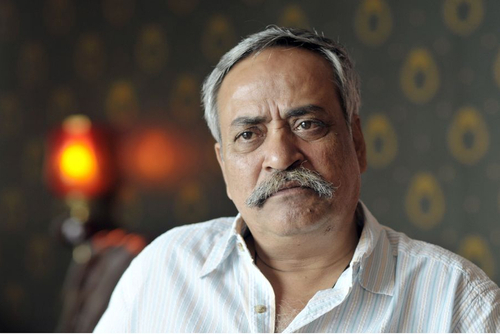
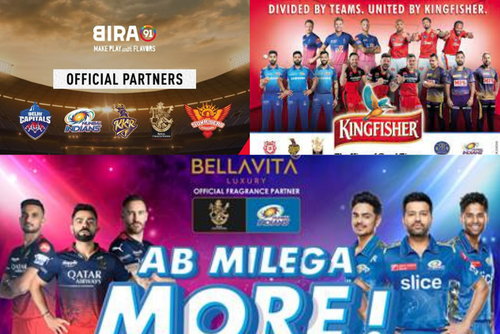
.jpg&h=334&w=500&q=100&v=20250320&c=1)
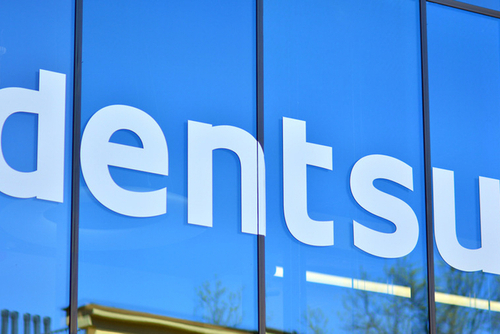


.jpg&h=334&w=500&q=100&v=20250320&c=1)
+(1).png&h=334&w=500&q=100&v=20250320&c=1)
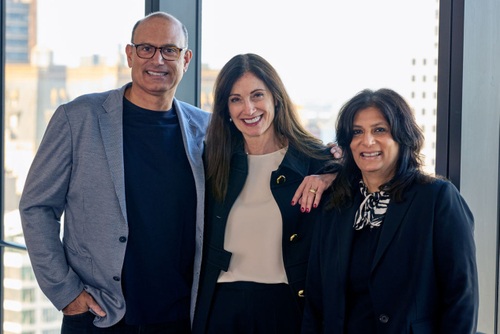
.jpg&h=334&w=500&q=100&v=20250320&c=1)
.png&h=268&w=401&q=100&v=20250320&c=1)
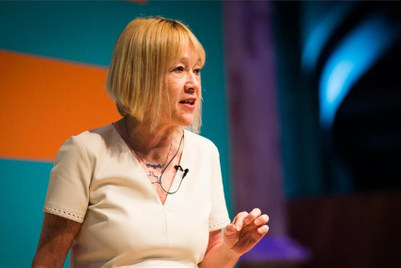
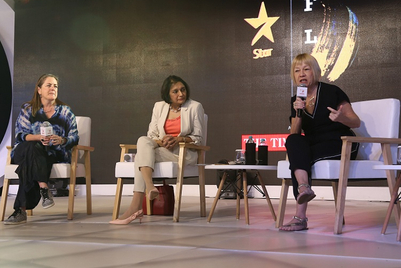
.jpg&h=268&w=401&q=100&v=20250320&c=1)
.jpg&h=268&w=401&q=100&v=20250320&c=1)
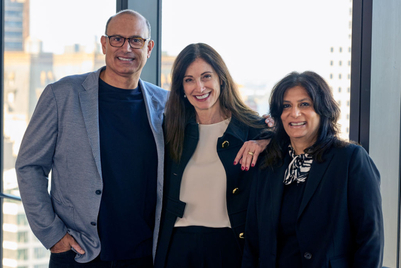
.jpg&h=268&w=401&q=100&v=20250320&c=1)

